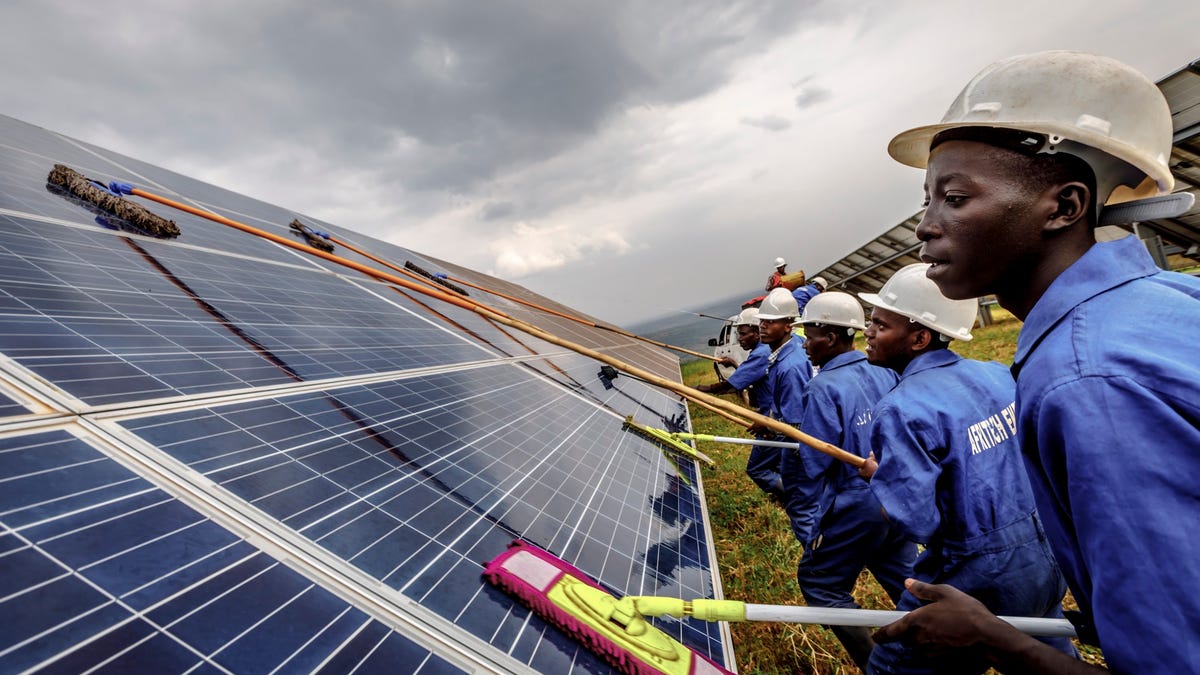Why Solar Energy Installation Is the Smart Selection for Your Home or Company
The choice to set up solar power in your home or company is increasingly identified as a calculated investment, driven by a mix of monetary incentives and ecological considerations. Embracing solar power not only boosts your building's value yet likewise contributes to an extra sustainable future.
Financial Financial Savings and Incentives
Buying solar power installments can substantially reduce energy prices for home owners and services alike. By harnessing power from the sun, properties can produce their very own electrical energy, leading to significant savings on regular monthly utility expenses. In a lot of cases, these financial savings can offset the first installation expenses within a couple of years, providing an appealing roi.
Furthermore, countless financial rewards exist to urge solar adoption. Federal tax debts, such as the Investment Tax Obligation Credit (ITC), enable house owners and businesses to deduct a considerable portion of solar installment prices from their government tax obligations. solar photovoltaic. Numerous states and regional governments likewise supply discounts, gives, or performance-based incentives, even more improving the cost of planetary systems
Funding alternatives, consisting of solar loans and leases, are available to ease the ahead of time financial burden. Through these arrangements, home proprietors can spread the expense of setup in time, typically paying less than their previous electrical power expenses.
Furthermore, the enhancing value of residential or commercial properties geared up with solar systems makes them more attractive in the property market. On the whole, the economic advantages of solar power installations are engaging, making them a wise investment for the future.
Ecological Influence and Sustainability

In addition, solar installations can reduce dependence on non-renewable sources, such as coal and gas, which can lead to habitat damage and contamination via removal and burning procedures. By transitioning to solar power, homeowners and companies actively take part in minimizing their carbon impact, cultivating a much healthier ecosystem.
Additionally, the manufacturing of solar panels has become more efficient and less hazardous to the environment over the years. Numerous producers are now committed to using lasting techniques, consisting of reusing materials and reducing waste.
Energy Independence and Stability
Attaining power self-reliance with solar power installations empowers people and neighborhoods to minimize their reliance on imported nonrenewable fuel sources. This change not just improves local power safety but also stabilizes power expenses with time. With solar energy, property owners and companies can generate their very own electricity, mitigating the impact of varying power rates driven by global markets.
Solar installments give a sustainable alternative that assists buffer versus geopolitical tensions and supply chain interruptions related to fossil fuel helpful site dependancy. By harnessing sunlight, communities can cultivate a self-dependent power framework, making certain constant access to power no matter external variables. This self-reliance cultivates economic strength, as energy production comes to be localized, maintaining more economic resources within the neighborhood.
Moreover, the shift to solar power adds to grid security. Distributed planetary systems can reduce stress and anxiety on conventional power grids, lowering the possibility of power outages throughout peak demand periods. As even more entities adopt solar innovation, the cumulative change towards eco-friendly power sources magnifies the total stability of the energy landscape. Eventually, welcoming solar power not just promotes specific and area empowerment but additionally sustains nationwide goals for a sustainable and trusted energy future.

Technical Improvements in Solar
Innovations in solar technology are reinventing the means energy is utilized and used, better supporting the energy self-reliance attained via solar installations. Developments in solar (PV) cells, specifically the growth of bifacial panels, permit enhanced energy capture by taking in sunshine from both sides. This modern technology boosts performance and makes the most of energy outcome, making solar setups extra reliable than ever before.
In addition, improvements in energy storage space solutions, such as lithium-ion batteries, offer property owners and companies the capability to keep excess energy generated during peak sunlight hours. This capacity makes certain a constant power supply throughout periods of low sunlight, boosting power integrity and minimizing reliance on the grid.
Smart inverters have also arised as a critical part of modern solar systems, giving real-time surveillance and optimization of energy usage (solar photovoltaic). These systems enable users to handle their energy consumption intelligently, bring about lowered expenses and improved performance